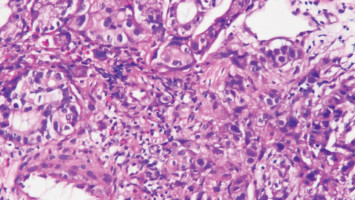
Stomach cancer, or gastric cancer, is a common gastrointestinal malignancy.
Peritoneal metastasis occurs in a majority of patients with advanced stomach cancer and is considered as an aggressive disease with poor outcomes.
Patients with peritoneal metastasis are typically not eligible for curative surgery.
Therefore, preoperative detection and diagnosis of peritoneal metastasis are critical to inform treatment decision-making and avoid unnecessary surgery.
A new study published in the JAMA Network Open on Jan. 5 shows that deep learning can help predicting the occult peritoneal metastasis in stomach cancer.
It provides a novel and noninvasive approach for stomach cancer patients and may inform individualised surgical management of stomach cancer.
The study was conducted by Dr. XIE Yaoqin's group from the Shenzhen Institutes of Advanced Technology (SIAT) of the Chinese Academy of Sciences, Dr. LI Ruijiang from Stanford University, Dr. LI Guoxin from Nanfang Hospital, and Dr. ZHOU Zhiwei from Sun Yat-sen University Cancer Center.
The researchers developed a deep learning model called Peritoneal Metastasis Network (PMetNet) to predict clinically occult peritoneal metastasis using preoperative computed tomography (CT) images in patients with stomach cancer.
Dr. JIANG Yuming from Stanford University, one co-first author of this study, explained that the proposed deep learning model may serve as a reliable noninvasive tool for the early identification of patients with clinically occult peritoneal metastasis.
"It can also inform individualised preoperative treatment decision-making and may avoid unnecessary surgery and complications," said Ph.D. candidate LIANG Xiaokun from SIAT, the other co-first author.
We are an independent charity and are not backed by a large company or society. We raise every penny ourselves to improve the standards of cancer care through education. You can help us continue our work to address inequalities in cancer care by making a donation.
Any donation, however small, contributes directly towards the costs of creating and sharing free oncology education.
Together we can get better outcomes for patients by tackling global inequalities in access to the results of cancer research.
Thank you for your support.